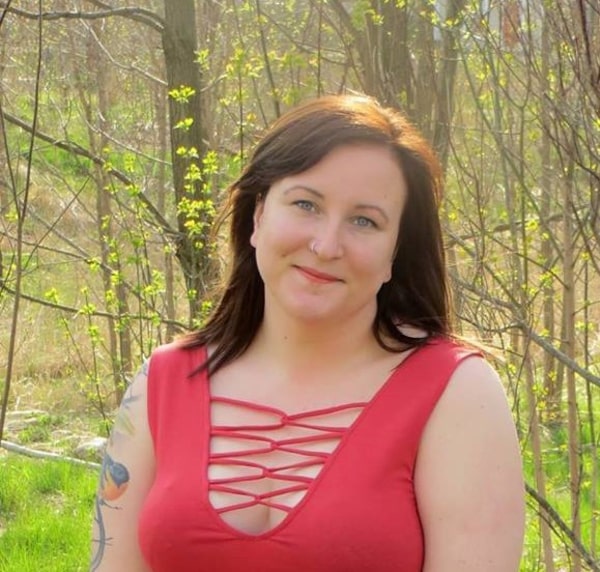
Elliot Eurchuk, a Victoria-area teen who died of a drug overdose at the age of 16, in an undated family photo.HO/The Canadian Press
When her son Sam Stuart died of a drug overdose last May at the age of 44, Judith Stuart had to decide what to say in his death notice for the local paper. If she had been like many parents in the same position, she may have avoided mentioning what killed him. She would have said that he died “suddenly,” “unexpectedly,” “tragically” or “too young.” She would have written about the virtues of her blue-eyed, blond-haired boy and left the rest unsaid.
Ms. Stuart took a different path. In a notice in the Victoria Times-Colonist, she put it plainly: “Sometime on May 3, 2020, my son Sam passed from this life alone, from overdose.”
Her son, she said, suffered from schizoaffective disorder, “which means the reality you and I understand was not the same for him. One of the ways he coped was to self-medicate with street drugs. He chose drugs because they soothed those demons in his head.”
Since the start of the pandemic, which shut borders and affected the drug supply, people such as Sam were dying in droves, she wrote, leaving their families “encircled in grief, standing but crumbling.”
Why wasn’t more being done to protect them? “Is it because they behave differently, suffer differently, look different? Are they not worthy of our concern or compassion?”
Ms. Stuart’s cry from the heart was part of a shift in the way families are speaking about overdoses. As the opioids crisis deepens, more and more of them are writing death notices that are honest about how their loved ones died. Their aim is to alert others to the dangers and pull back the curtain of shame and that often attends such deaths.

Sophie Breen died of an overdose of fentanyl, aged 27.Supplied
Sophie Breen died on March 4 of last year, aged 27. Her death notice says she was “the 12th person in a matter of days to overdose on fentanyl in Guelph, Ontario.” It describes her as a “powerfully intelligent, passionate, talented, independent, resilient woman” who suffered from physical and mental illness but held on to her lust for life. “Her cause of death makes her one of far too many.”
Elliot Eurchuk’s death notice says that he died in Victoria on April 20, 2018, at the age of just 16. It calls him an avid reader, boxer and rugby player who struggled after being prescribed opioids after surgeries.
In a follow-up notice in the Times-Colonist on the second anniversary of Mr. Eurchuk’s death, his family wrote, “our beautiful son did not stand a chance against these powerful drugs.” With overdose deaths surging, “our government needs to take a stand with the same conviction they are in this pandemic.”
In one remarkable recent case, a family came forward more than a decade after suffering a loss. Scott MacDonald of Saskatoon died on Jan. 3, 2010, aged 47. His widow, Patricia Zarowny, was told that he died from a blood clot, but later learned from a toxicology report that it was an overdose.
After the son of one of his close friends died of an overdose last summer, Ms. Zarowny decided she should speak out about Mr. MacDonald’s death. “We feel it is time to end the stigma of drug use,” read the notice she put in the Saskatoon Star-Phoenix on Jan. 2. “We would like to state out loud that his death was due to an accidental methamphetamine overdose. Eleven years since Scott’s struggle ended. Eleven years of heartache. Eleven years to speak our truth.”
It is signed by Ms. Zarowny and the two sons she had with Mr. MacDonald, a warehouse worker who loved fishing, yard work and watching Sunday afternoon football with his pals. “We talk about cancer and everything else openly,” Ms. Zarowny said in an interview. Drug use “is just another disease and we should be able to talk about it without feeling shame.”
Not everyone is ready to be so forthright. Many families of overdose victims still avoid mentioning a cause of death altogether. Others simply ask for donations to an addiction or mental-health organization.
Terry McLean, who lost her 23-year-old daughter, Brett, to an overdose in 2018, says it takes courage for parents to come out and tell the world their child was a drug user. “It’s a personal choice, and for some people, it’s harder than for others,” she said.
She and her husband decided to be open about Brett’s death in hopes of getting action on the opioids crisis and to smash stereotypes about drug users. In the death notice for their “precious girl,” they called for “radical change to manage this health care crisis killing our youth.”
Far from being judged, Ms. McLean says, she was instead flooded with praise for her candour. Sam Stuart’s mother, Judith, says that she also heard many kind words after her emotional message appeared. People still write to her and approach her on the street to thank her for shining a light on the overdose problem.
It doesn’t change what happened, or extinguish her grief over the loss of Sam, a “brilliant” guy who grew orchids, raised tropical fish and fashioned tiny boxes out of wood. She started sleeping with one of his old T-shirts under her pillow to hold on to his memory. But at least now, she says, “I don’t feel I’m on this path alone.”
Our Morning Update and Evening Update newsletters are written by Globe editors, giving you a concise summary of the day’s most important headlines. Sign up today.